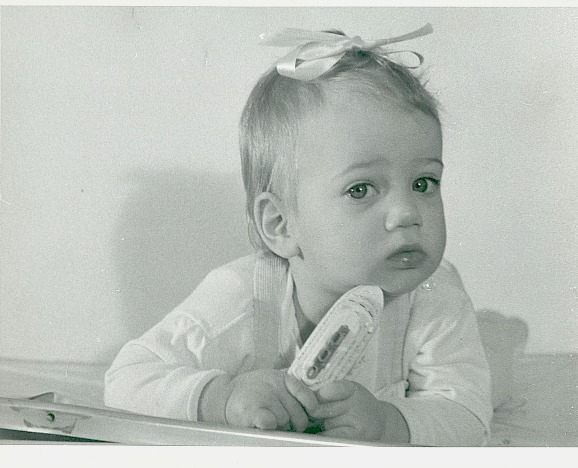 The Middle Ages in Europe, beginning with the collapse of the Holy Roman Empire and followed by the invasion of the barbarians, are generally divided into three periods: Early, High and Late. My Middle Ages are progressing in reverse, beginning with the departure of the barbarians, when the kids left the nest, and instead of advancing away from Antiquity, heading toward it.
The Middle Ages in Europe, beginning with the collapse of the Holy Roman Empire and followed by the invasion of the barbarians, are generally divided into three periods: Early, High and Late. My Middle Ages are progressing in reverse, beginning with the departure of the barbarians, when the kids left the nest, and instead of advancing away from Antiquity, heading toward it.
As with Europe, my Middle ages can be divided into three stages. The first was Recovery, a roughly 10-year period during which I cleaned the house.
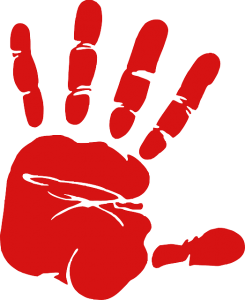 Housecleaning was one of the things I could depend on in the child-rearing years: whether I did it or not, it never went away. A friend just ahead on the Mommy track once advised, “Don’t paint until the kids leave.” I followed the last child out of the house with a wet brush in hand and painted over the dark smudge that ran up the wall along the stairs. I even painted over an intact handprint for some future historical preservationist to uncover and hypothesize about how late-20th century interior décor displayed remarkable veneration of the child. So be it.
Housecleaning was one of the things I could depend on in the child-rearing years: whether I did it or not, it never went away. A friend just ahead on the Mommy track once advised, “Don’t paint until the kids leave.” I followed the last child out of the house with a wet brush in hand and painted over the dark smudge that ran up the wall along the stairs. I even painted over an intact handprint for some future historical preservationist to uncover and hypothesize about how late-20th century interior décor displayed remarkable veneration of the child. So be it.
As is often the case, recovery was not a straight line but a series of false starts: attempts at organization and lapses into disorder I could no longer blame on the kids. For this reason, I sometimes define this first era of my middle age as Preparation, getting ready for middle age, because when I was in Recovery, I still thought Middle Age lay ahead.
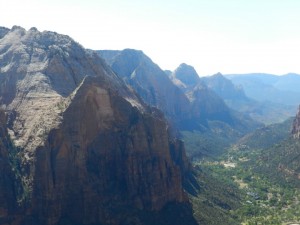 I prepared for menopause, about which I’d heard so many complaints: hot flashes, mood swings, dry skin, limp hair, lost libido. I started to run. In fact, I ran a half marathon. I liked feeling fit. And when the change came, I liked that, too. I emerged from a hormonal swamp to the clear air above tree line. Hot flashes were just the after-burn of estrogen being wrung from my system. The view from this height was exhilarating. If this is middle age, bring it on!
I prepared for menopause, about which I’d heard so many complaints: hot flashes, mood swings, dry skin, limp hair, lost libido. I started to run. In fact, I ran a half marathon. I liked feeling fit. And when the change came, I liked that, too. I emerged from a hormonal swamp to the clear air above tree line. Hot flashes were just the after-burn of estrogen being wrung from my system. The view from this height was exhilarating. If this is middle age, bring it on!
Instead of driving kids to ballet and karate, I studied piano. I relearned how to think and how to be by myself. But it wasn’t easy: Mothering is a hard habit to break.
The Victorians referred to the middle era of medieval times as the Dark Ages, which I think says more about them than the people of the High Middle Ages. The High Middle Ages find me at the top of my game, with intimations of mortality becoming visible on the horizon. In this era, I check the birth announcements to see which of my cohort have become grandparents. Even my brother’s a grandpa. Me? I’m a great-aunt. Truly, I’m a terrific aunt, both to my niece and to her young daughters. I love when they visit, and after they leave, I wipe their hand prints from the walls.
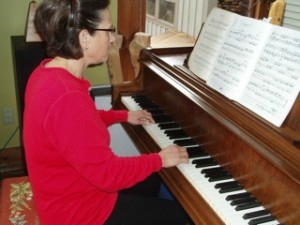 I’m enjoying an unprecedented time of life: doing work that I love, engaging in meaningful community service, visiting my adult children, staying fit in body and mind, and developing a deeper spiritual life. But I can see that this era of High Middle Age will eventually run its course.
I’m enjoying an unprecedented time of life: doing work that I love, engaging in meaningful community service, visiting my adult children, staying fit in body and mind, and developing a deeper spiritual life. But I can see that this era of High Middle Age will eventually run its course.
In Europe, Late Middle Age was marked by the Black Death, when a third of the population fell to the plague. I’ve already lost friends to cancer. And while I still read the obits to see whose parents have died, I’m seeing memorials for people my age turning ashes to dust.
I’ve witnessed the gradual decline that occurs in Late Middle Age as humans approach Antiquity, which we’re doing in unprecedented numbers. My mother lived to be 87; my dad is poised to turn 90 in good health. But just as my kids are establishing their independent households, I’ve been helping my dad dismantle his. I’m not alone: I was born during the height of the Baby Boom, and many of my cohort now care for their parents.
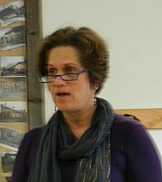 If I’m lucky, I still have a few decades of Middle Age ahead; for the first time in my life, I’m not in a rush to grow up. I’m enjoying this rich time, when I’m still healthy and productive (as opposed to reproductive), and I wonder how Middle Age got such a bad rap.
If I’m lucky, I still have a few decades of Middle Age ahead; for the first time in my life, I’m not in a rush to grow up. I’m enjoying this rich time, when I’m still healthy and productive (as opposed to reproductive), and I wonder how Middle Age got such a bad rap.
I live in Windham County, which has the oldest population in the second -oldest state, so I think it’s high time for a public discussion about both the challenges and pleasures of The Middle Ages.
This post first appeared in The Rutland Herald on January 22, 2015.
Wonderful post! It’s such a pleasure to read your work!
I’m a few years older than you: I’m poised at the very tip of the Baby Boom iceberg, moving through Late Middle Age and taking my first steps toward Antiquity with a few aches and pains and dragging along several more pounds than I’d like. I also live with the fact that my best friend and long-time husband is slowly losing his battle with ill health and dementia.
Nevertheless, so far my “pre-Antiquity” years have been, more often than not, a time of expansion and self-discovery. I’ve found a public voice I didn’t know I had; I’ve grown in heart and mind; and experience has proven to me that I’m stronger than I ever thought I was (or, more likely, I’m simply more stubborn than I ever was!).
Anyway. Bottom line? From where I stand, it’s not bad at all.
Namaste
Thanks so much for your affirming comments.
Deb, OMG I loved the global frame of the middle ages and relating it to the microcosm of our lives. This is such a fabulous fun poppy piece : Housecleaning as something we can count on, the creativity that comes when the taxi service is defunct, meeting menopause with running. Wonderful: all of it. You are such a brilliant writer…
Thanks you for your kind words!